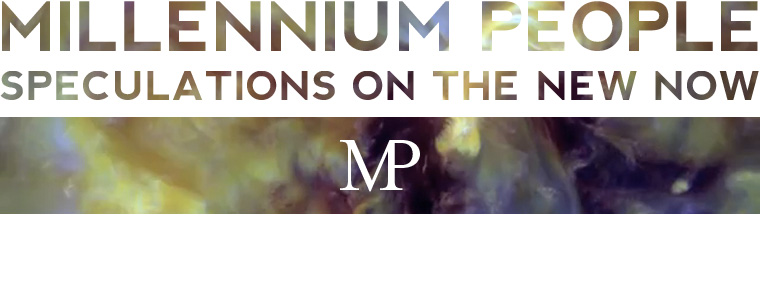
Stark images of LA by David Maisel.
"The modern city is the data city. Architectural renderings and monographs present case studies in the context of information, with statistics and graphs supplementing the traditional projected view. The utopia of tomorrow will be saturated with information, and it is how we navigate this space that is the focus of so much contemporary speculation on technology and the city."Via Things
A two part post today: if you don't like what you're reading, scroll down past the +++
There's an interesting post over at the much-loved Things, which might be summarised thus: urban interaction is becoming increasingly non-physical as we experience the city more and more through technologies of its representation (GPS, Twitter, Google Maps, etc) than through the actuality of its corporeal fabric. Nonetheless, Things recognises that our relation to the city is as a simulacrum – we are not replacing the real with the informatic, we are simply poorly imitating it: "the way virtual interfaces mimic physical spaces – desktops, pinboards, tables and surfaces you can post, pin, pinch and scatter content across – acknowledges our hunger for the tangible." They conclude: "The data city of the future will be unnavigable without technology, granted, but as a species we seem to be crying out for help remembering, unable to find things with the arsenal of digital tools and reliant, instead, on other people's recollections."
Contemporary data, being instant and always accessible, is also instantly forgettable. Couple this with declining attention spans (I wonder how many readers even make it to this point) and you arrive at an inescapable conclusion: in the future we will either learn to forge more ephemeral relationships to information (we won't remember, but we won't need to) or we will learn to handle information in a very different way.
Since, and this is my real point, the future is never merely a prolongation or projection of the conditions of the present, I would definitely consider the latter as more likely. The future is the data city, but it won't be accepted by people as the city of the future. To a certain extent the city has always been a 'data city', the possibility for the exchange of information (and obviously goods and services) is what intitially permitted for fixed settlements. And yet the way that data is handled by the city's citizens changes all the time, and to envisage the city of the future in the digital or informatic terms of today is as redundant as the utopias of the steampunk clique. To extend Things' conclusion – the rise of digital information might be weakening the reasons for the city's existence at all. In this future, the metropolis itself may one day become physically irrelevant.
In explaining the goals of Millennium People I often compare 2009 to 1909. When the people of this time envisaged the future they merely projected forward the industrialism of the late 19th century (not unlike the Steampunks). They could hardly have foreseen processes like computerisation, miniaturisation, post-Fordian society, globalisation, contemporary financial systems, because they lay so far outside their realm of reality as to be inconceivable. For them, the flying machine, made of canvas and wood, seemed like a pretty far-fetched idea.
By the same, to consider the metropolis of the future in traditional utopian terms – and especially to become overly fixated with the rise of the digital, is to limit oneself to a future that is really only a hi-tech version of today. This is not to say that the future is unimaginable: but it requires a very special mind, perhaps even greater than H.G. Wells or J.G. Ballard.
+++
My benchmark of futuristic thought is Jules Verne's novel Paris in the 20th Century. Considered too radical by his publisher in 1863, the book was locked away in a family vault for over a hundred years, and was only re-discovered by accident in the late 80's. Which is how I plucked my own copy from a box of freshly printed American first editions in 1996.
I won't spoil the plot, but in this remarkable story set in the year 1960 Verne envisages a city of glistening skyscrapers, each one air-conditioned. The streets are crammed with gas-powered cars, with rapid public transit covering the sub-terranean city. And yet these are only the more mundane visions: he foresees a worldwide 'telegraphic' communications network (the internet), a type of screen for viewing from a distance (television), elevators and an electronic, telephonic, document copier (fax machine).
Returning to the present day, it is this type of Vernian imagination that will carry us into the future. And the first step is to move beyond the 'data city', move beyond the delights of the digital and start scratching our heads about what is to come next. That's how we will become New Millennium People.



No comments:
Post a Comment